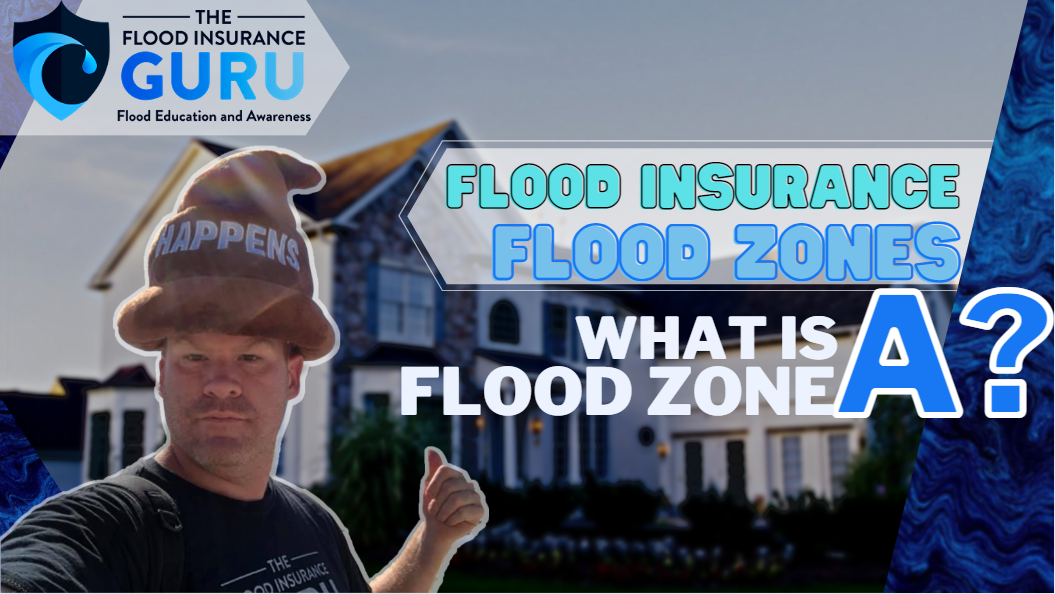The Flood Insurance Guru Podcast Episode 7: Everything Elevation Certificates
June 25th, 2019
4 min read
By Chris Greene
.png?width=1640&height=924&name=DEINPLATES%20(2).png)
When your NFIP or Private Flood asks for Elevation Certificate, you should be smart about it.
-png.webp?width=628&height=354&name=DEINPLATES%20(2)-png.webp)
We've covered the Flood Zones, National Flood Insurance Program, how they work and their benefits as well as the Private market or Private Flood Insurance market, Disaster Assistance, and NFIP 2.0. In this episode, we cover one of the most important documents that your flood insurance company may ask you, but more so, it's important that you know when do you really need, what is it used for, and how this will impact your property's flood insurance.
Elevation Certificate
An elevation certificate is either done by a surveyor or a professional engineer. This shows the different elevations of the building like the top or bottom, top of the next floor, servicing equipment, where your stairs are located, what type of foundation you have, and most importantly the flood zone where your property is located and where it stands in the base-flood zone. This will be shown as numbers that compares the structure with the base-flood elevation. You can see how this works in a diagram below from the Federal Emergency Management Agency (FEMA).

These numbers determine if your property is in a positive base-flood elevation or negative. Positive generally meaning your building's sitting higher than the base-flood elevation, negative meaning the structure sits below it. When we say your home has positive elevation, this means that it sits above the base-flood elevation. On the other hand, if we say the home has negative elevation, it means that it sits below the base-flood elevation. This is important for FEMA and NFIP to determine the flood risks of your property.
Make sure that you get your certificate from a licensed surveyor or professional engineer, and have it signed and stamped by them before you file it to the insurer NFIP or FEMA. This is to make they've done it correctly since this certificate will impact you financially and can affect your property's value in the long run.
Colored photos and color legend are best for your certificate as well. We strongly suggest this since this can show the specifics of the building like which one is a basement and which one is the ground floor so to say.
When Do You Need One?
The National Flood Insurance Program (NFIP) and Federal Emergency Management Agency (FEMA) lists an elevation certificate as a requirement in order to get flood insurance in certain situations. If you're living in a special flood hazard area or high-risk flood areas, like Flood Zone A or AE, you're required by NFIP and FEMA to have an elevation certificate.


There are some situations where this certificate won't be required. This is regardless if your house was built before 1978 or before the year the first flood map was made for that area.
Before You Get One
If your property was built before 1978, didn't have any additions or upgrades, and hasn't had fifty percent (50%) substantial improvement within a given year, then an elevation certificate won't be required. This will also greatly benefit your flood insurance rate from FEMA. This is because all houses, buildings, properties, or structures that were built in 1978 onwards are required to have an elevation certificate.
Keep in mind that any additions, upgrades, or substantial improvement made on the property after 1978 will be deemed as built on whatever year those additions were made by NFIP and FEMA. This takes you from not needing an elevation certificate to having to run to your trusted licensed surveyor or professional engineer for help. This can be very jarring since depending on where you sit and the results of the elevation certificate, you might pay a higher rate for your flood insurance with NFIP and FEMA.

If you look at the other side of the fence, the private market generally doesn't require you to have an elevation certificate for your property. Heads up, if you're still sitting on a high-risk flood zone or special flood hazard area like flood zone A, then FEMA and NFIP's guideline will still require you to have an elevation certificate, but this won't affect your rate from the private insurer.
This is an important fact you should know about private flood insurance companies. They generally don't let an elevation certificate affect your flood insurance rate. It's different for situations where your foundation top is below-grade since this may drastically increase your flood insurance rate regardless of who you're getting it from. An air-conditioner or any servicing equipment that sits fairly low on the ground, maybe along its lowest adjacent grade, then an elevation certificate may not benefit you at all.
It Helps or It Hurts?
How does this impact you as a homeowner? Well, it depends on where you sit in the base-flood zone. If your property's sitting in a positive elevation, say four (4) feet above the base-flood elevation, then you are more likely to get a better deal with your rate. It then helps you and your financial situation when it comes to getting the best flood insurance however if, say your home sits in negative elevation, then this will definitely hurt your rate since you'll most likely be required to pay higher flood insurance premiums. The lower your overall property is from the base-flood elevation, the higher your premium's going to be.
This also helps if you want to get your property properly checked. Say, the bank notified you that you're now in a special flood hazard zone, but you don't believe you are. You can use elevation certificates to prove whether they're right about it. If the certificate was able to determine that you're lowest adjacent grade is 6-inch to a foot above the base-flood elevation, then you can have your property removed from being considered in the special flood hazard area.
How Much Do They Cost?
This is a very tricky question since it depends where your property's located. For example, parts of New York may charge you from $1500 to $2000 for an elevation certificate. Generally, the safe number to expect for how much this costs is around $500 to $800. It sounds like a lot of money, but remember, an elevation certificate can help you financially in the future as this can be used for your benefit.
Like we mentioned before, your property can be removed from the special flood hazard area and given time to analyze, NFIP and FEMA are most likely to lower your rates because of this. This is also helpful in your property or building's resell value. For business owners, an elevation certificate is a mandatory document for business permits as well. This can also help you determine how to best improve or add to your property, not knowing the floor elevation from the base-flood elevation will be detrimental to your property's value and safety.

There are certain documents you need in order to really help yourself and your property, and we can say that if you need to get an elevation certificate, don't hesitate from filing for one. It can be a bang for your buck and helps you prepare before crap even happens.
Remember, we have an educational background on flood mitigation. We'll be happy to help answer your questions on flood insurance, flood risks, elevation certificates, and anything and everything flood. If you have any questions about your elevation certificate, how to get one, should you get one, or anything at all about your flood insurance, feel free to call us, watch our educational YouTube videos, or reach out to us through this website by clicking the links below:




